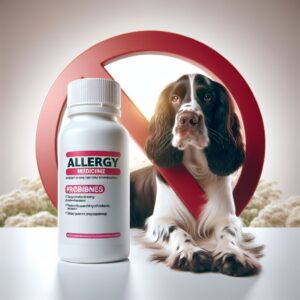
Table of Contents
- Seizure-Smart Strategies for Your Hunting Dog’s Health
- Building a Seizure-Resistant Diet
- When Food Isn’t Enough: Additional Care for Hunting Dogs with Seizure Risk
- Know Your Hunting Dog: Breed-Specific Tips for Seizure Prevention
- Practical Tips for Feeding Your Hunting Companion
- Implementing Feeding Schedules and Portions
- The Role of Hydration in Seizure Prevention
- FAQs
- What are the first signs of a seizure in dogs?
- The Role of Hydration in Seizure Prevention
- Can a diet really help reduce the likelihood of seizures?
- What foods should be avoided for dogs prone to seizures?
- Is there a difference between a regular diet and a ketogenic diet for dogs?
- How can I personalize my hunting dog’s diet for optimal health?
- Author
Key Takeaways
- Identifying high-quality ingredients is vital for a seizure-resistant diet in hunting dogs.
- Omega-3 fatty acids and antioxidants are key nutrients for brain health and seizure prevention.
- Regular exercise, alongside a balanced diet, plays a crucial role in managing a dog’s seizure risk.
- Breed-specific dietary considerations can help tailor nutrition plans for individual hunting dogs.
- Hydration and proper feeding schedules are as important as the food itself for preventing seizures.
When it comes to the health of your hunting dog, every meal counts, especially if they’re prone to seizures. A well-crafted diet can mean the difference between a day in the field and a day of worry. So, let’s talk about how you can optimize your dog’s nutrition to help prevent seizures and keep them healthy and active.
Seizure-Smart Strategies for Your Hunting Dog’s Health
First things first, seizures in dogs can be frightening to witness and can be caused by a variety of factors, from genetic predispositions to environmental stressors. While not all seizures can be prevented, there are strategies you can implement to reduce their likelihood. Most importantly, nutrition plays a key role in managing your dog’s health.
Importance of Diet in Controlling Dog Seizures
The right diet does more than just fill your dog’s belly – it can support their brain function and overall health. A balanced diet rich in essential nutrients can help regulate the nervous system and prevent seizures. On the flip side, a diet lacking in key components or one that contains potential allergens can increase seizure risk.
Recognizing the Signs of Seizures in Dogs
Before diving into dietary changes, it’s crucial to know what you’re up against. Seizures can look different from one dog to another, but common signs include uncontrolled shaking, loss of consciousness, and paddling of the legs. If you notice these symptoms, consult your vet immediately. They can help determine if your dog’s diet might be a contributing factor.

Building a Seizure-Resistant Diet
Creating a diet that helps prevent seizures in your hunting dog starts with understanding what to include and what to avoid. A seizure-resistant diet isn’t about a single magic ingredient; it’s about balance and ensuring your dog gets all the nutrients they need for optimal brain health.
Key Nutrients for Brain Health
- Omega-3 Fatty Acids: These are crucial for brain function and can be found in fish oil and flaxseed oil.
- Antioxidants: Vitamins E and C, as well as selenium, can help protect the brain from oxidative stress.
- B Vitamins: These support the nervous system and can be found in meats and whole grains.
- Amino Acids: Taurine and L-carnitine are important for heart and brain health.
- Water: Adequate hydration is essential for all bodily functions, including the brain.
When you’re selecting food for your hunting dog, look for these nutrients on the label. But it’s not just about what’s in the food; it’s also about what’s not. Artificial additives, excessive grains, and unidentified meat by-products can do more harm than good.
Now, let’s break down the specifics of what to include in your dog’s diet to help prevent seizures.
Foods to Include and Avoid for Seizure Prevention
It’s essential to feed your hunting dog a diet that includes whole, natural foods and avoids potential seizure triggers. Here are some guidelines:
- Include: High-quality proteins (like lean meats and fish), complex carbohydrates (such as sweet potatoes and peas), healthy fats (like those from fish oil), and fresh vegetables for fiber and vitamins.
- Avoid: Foods with artificial preservatives, colors, and flavors, as well as common allergens like soy, wheat, and excessive corn products that can contribute to inflammation.
Every dog is unique, and what may be a trigger for one might not affect another. Therefore, it’s important to monitor your dog’s reaction to different foods and adjust their diet accordingly.
Understanding Canine Ketogenic Diets
The ketogenic diet, high in fats and low in carbohydrates, is often discussed in the context of seizure management. This type of diet is believed to alter the energy metabolism in the brain, which can help to reduce seizure activity. While some hunting dog owners have reported success with this approach, it’s important to consult with your veterinarian before making any significant changes to your dog’s diet.

When Food Isn’t Enough: Additional Care for Hunting Dogs with Seizure Risk
Medication and Dietary Supplements
Even with the best diet, some hunting dogs may still experience seizures due to their genetic makeup or other health issues. In these cases, medication prescribed by a veterinarian can be necessary. Additionally, dietary supplements such as omega-3 fatty acids or antioxidants might be recommended to support brain health and further reduce seizure frequency.
Exercise and Seizure Management
Regular exercise is crucial for your hunting dog’s overall health and can also aid in managing seizures. Exercise helps to maintain a healthy weight, reduce stress, and increase the overall sense of well-being—all of which can contribute to seizure management. Just remember to keep exercise routines consistent and avoid overly strenuous activities that could become stress triggers themselves.
Know Your Hunting Dog: Breed-Specific Tips for Seizure Prevention
Breeds Prone to Seizures and Their Dietary Needs
Some hunting dog breeds are more prone to seizures than others, including Beagles, German Shepherds, and Labrador Retrievers. These breeds may benefit from a diet that is specifically tailored to reduce the risk of seizures. For example, a diet that’s rich in omega-3 fatty acids can support brain health, particularly in breeds predisposed to epilepsy.
Personalizing Your Dog’s Diet Plan
There’s no one-size-fits-all when it comes to nutrition. Each dog’s diet should be personalized based on their age, breed, activity level, and health status. Work closely with your vet to determine the best diet plan for your hunting companion, considering their specific needs and any seizure history.

Practical Tips for Feeding Your Hunting Companion
Implementing Feeding Schedules and Portions
Consistency is key when feeding your hunting dog. Stick to a regular feeding schedule and provide portion-controlled meals to maintain a healthy weight and metabolism. Overfeeding can lead to obesity, which is a risk factor for seizures, while underfeeding can result in nutrient deficiencies that may also increase seizure risk.
The Role of Hydration in Seizure Prevention
Never underestimate the importance of water. Dehydration can lead to electrolyte imbalances, which can trigger seizures. Ensure your hunting dog always has access to fresh, clean water, and encourage them to drink regularly, especially after exercise or time spent outdoors.
FAQs
What are the first signs of a seizure in dogs?
The first signs of a seizure can vary from subtle changes in behavior to the more obvious like uncontrollable shaking or stiffness. You might notice your dog appear confused, stare blankly, or even hide. These signs can quickly escalate to more severe symptoms, including muscle twitching, drooling, collapsing, and jerking movements. If your dog displays any of these signs, it’s vital to consult with your veterinarian to determine the best course of action.
Remember, the best diet for preventing seizures in your hunting dog is one that’s balanced, consistent, and tailored to their individual needs. By paying close attention to their diet and overall care, you can help minimize the risk of seizures and keep your four-legged friend healthy and ready for the next adventure.
The Role of Hydration in Seizure Prevention
Water is the essence of life, and this couldn’t be truer for your hunting dog’s health. Proper hydration is critical for maintaining normal cell function and for the transport of nutrients and waste. A dehydrated dog can suffer from an imbalance in electrolytes, such as sodium and potassium, which are vital for normal nerve function. An imbalance can lead to seizures, making it essential to ensure your dog has constant access to clean water and is encouraged to drink regularly.
Can a diet really help reduce the likelihood of seizures?
Absolutely. While a diet may not prevent all seizures, especially those caused by genetic conditions or brain lesions, it can play a significant role in overall seizure management. A balanced diet that avoids potential allergens and toxins and is rich in nutrients that support brain health can help reduce the frequency and severity of seizures in many dogs.
Remember, it’s not just about what you feed your hunting dog, but also how you feed them. Consistent feeding times, portion control, and avoiding sudden changes in their diet are all important factors in maintaining their health and reducing the risk of seizures.
What foods should be avoided for dogs prone to seizures?
For dogs prone to seizures, it’s wise to avoid foods with artificial preservatives, colors, and flavors. Additionally, foods high in sugar or that can cause rapid blood sugar spikes should be avoided. It’s also important to identify and eliminate any foods that your dog may be allergic to, as allergies can contribute to inflammation and potentially increase the risk of seizures.
Is there a difference between a regular diet and a ketogenic diet for dogs?
Yes, there is a difference. A regular diet for dogs typically includes a balance of proteins, carbohydrates, and fats. A ketogenic diet, on the other hand, is high in fat and low in carbohydrates. This type of diet can be used to help control seizures in some dogs by changing the way the brain uses energy, although it’s not suitable for all dogs and should only be used under veterinary supervision.
How can I personalize my hunting dog’s diet for optimal health?
To personalize your hunting dog’s diet, start by considering their breed, age, weight, activity level, and health status. Consult with your vet to identify any specific needs your dog may have and to develop a nutrition plan that addresses those needs. You may also consider working with a veterinary nutritionist who can help create a custom diet plan for your dog. Regular check-ups and monitoring will help you adjust the diet as needed to ensure your dog remains in peak condition.




